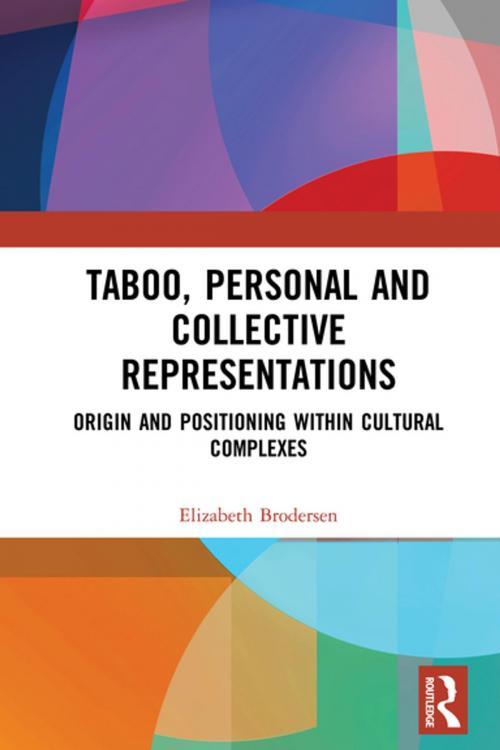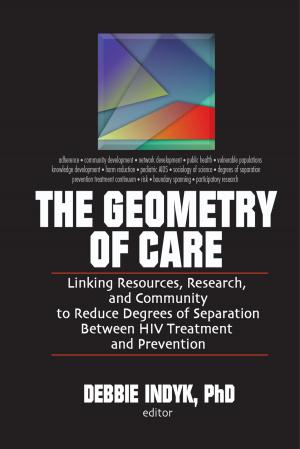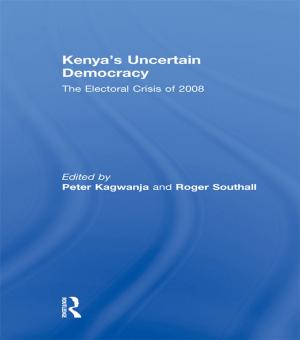Taboo, Personal and Collective Representations
Origin and Positioning within Cultural Complexes
Nonfiction, Health & Well Being, Psychology, Mental Health| Author: | Elizabeth Brodersen | ISBN: | 9781351039888 |
| Publisher: | Taylor and Francis | Publication: | March 4, 2019 |
| Imprint: | Routledge | Language: | English |
| Author: | Elizabeth Brodersen |
| ISBN: | 9781351039888 |
| Publisher: | Taylor and Francis |
| Publication: | March 4, 2019 |
| Imprint: | Routledge |
| Language: | English |
Taboo, Personal and Collective Representations examines the symbolic nature of taboo, asking what is the purpose of a taboo and how does it vary cross-culturally? The book focuses on the concept of taboo as an in-between, organizing principle which separates and differentiates stages through a ritual process of separation of order as clean/blessed from disorder as polluted/disassociated.
This book uses an interdisciplinary approach which compares the anthropological, ethnological, sociological, and depth psychological perspectives of renowned scholars in their examination of taboos. Unconscious/conscious taboos influence how we perceive transitional, indeterminate states across margins in the maturation and individuation processes. The book argues that a taboo embodies the perilous, symbolic meaning of such a rite of passage and that its emotional value and intensity in the form of symptomology varies across cultures.
Taboo, Personal and Collective Representations will be of great interest to researchers, academics and post-graduate students in the fields of anthropology, ethnology, origins of religion, race, gender, and depth psychology.
Taboo, Personal and Collective Representations examines the symbolic nature of taboo, asking what is the purpose of a taboo and how does it vary cross-culturally? The book focuses on the concept of taboo as an in-between, organizing principle which separates and differentiates stages through a ritual process of separation of order as clean/blessed from disorder as polluted/disassociated.
This book uses an interdisciplinary approach which compares the anthropological, ethnological, sociological, and depth psychological perspectives of renowned scholars in their examination of taboos. Unconscious/conscious taboos influence how we perceive transitional, indeterminate states across margins in the maturation and individuation processes. The book argues that a taboo embodies the perilous, symbolic meaning of such a rite of passage and that its emotional value and intensity in the form of symptomology varies across cultures.
Taboo, Personal and Collective Representations will be of great interest to researchers, academics and post-graduate students in the fields of anthropology, ethnology, origins of religion, race, gender, and depth psychology.















